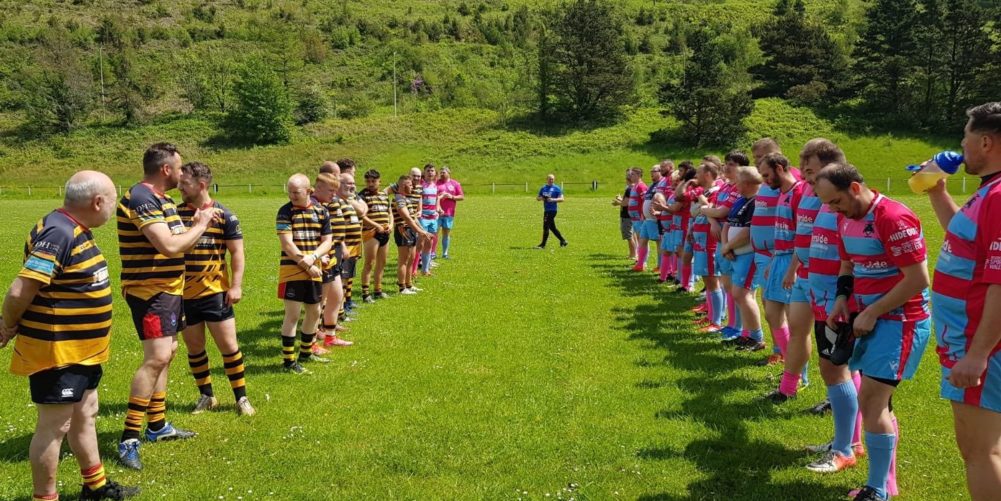Pontrhydyfen is a village in the Afan Valley where a local boy failed to realise his rugby dream and became a Hollywood superstar instead.
Dick Jenkins' youngest son came into the world along the road from the Miners' Arms, the pub where his parents met and which now doubles up as a clubhouse for the rugby team. Had they been as short of players when Ritchie Jenkins was a lad, as they have been of late, he would have got a game.
Raised a couple of miles away in Port Talbot following his mother's early death, the young fellow set his heart on playing for Aberavon, the steel town's elite club known to all and sundry as the Wizards.
Long after Ritchie Jenkins changed his name to Richard Burton, the famous actor readily confessed that he would have gladly traded the greasepaint for the most elusive role of all, playing for Wales at Cardiff Arms Park.
Despite pledging his ‘continuing allegiance until death to Aberavon and its rugby team', Burton had given up hope of being good enough by the time a few Hollywood moguls inserted a clause into his contract forbidding him to play rugby lest it scarred his good looks.
He died in 1983 at the age of 58, 30 years after his last game which he wrote about without appearing to name the clubs involved or the venue beyond a reference to a valley. Had he still been around, Burton would be shocked to find that a plague has descended on the community game. So many clubs struggle to find XV players that, as recently as a fortnight ago, 40 matches had to be postponed out of a total of 118 across all six divisions of the Welsh League.
Those unable to field a team included Pontrhydyfen for their last scheduled home fixture, against Glyncorrwg in West Central Division Four. “They told us they were short of players,'' says Rob Morris, Glyncorrwg's fixture secretary and funding co-ordinator who knew from personal experience how Pontrhydyfen felt.
“We've had to call off games for the same reason, including one at home to Cefn Cribbwr. They were about to leave on the day of the match when we told them of our predicament. All we could do was give them our sincere apologies. It was so embarrassing.
“Before the first lockdown, we were top of the table. Since then the bottom's fallen out of the game. When I was team manager, finding 15 players for that Saturday fixture was a nightmare. It got to such a stage that I had to try to bribe players to play by offering them takeaway meals and what have you. And it's not as if we have lost them to football because there's been no football club in the village for sometime.''
Morris, a nurse in a local care home, no longer has to shoulder the burden of finding a team. “I finished as team manager because of the stress,'' he says. “The lack of investment in community clubs is now affecting the national team as we saw with the failure to beat Georgia.''
Aberavon Quins' secretary Stuart Broad, a fearless campaigner fighting to end the ‘massive disconnect' between the hierarchy of the WRU and its impoverished clubs, says: “The community game is on life-support.
“The WRU has a total of 327 clubs and I think about 100 will disappear over the next ten years. Rugby clubs in small villages acted as a hub for their community. Take the rugby club out and you destroy the community.
“You can trace the decline of the community game back to the creation of the four regional teams in 2003. So many once great Welsh clubs lost their identity, clubs like Neath and Maesteg. You've only got to look at what's happened to them.''
Morris talks of a still bleaker scenario, fearful that the 100 clubs Broad talks of will disappear far sooner than ten years. “I'd say in five years time,'' says Morris. “You may have some clubs who will merge but many others will go to the wall.''
Meanwhile the postponements go on. Forty a fortnight ago accounted for as near one third of the entire WRU League schedule as makes no difference.
That the figure turned out to be only marginally above average for the season hitherto makes it all the more distressing. “The lowest number of postponements for one weekend this season is 38,'' says Broad. “As far as we know, every postponement has been caused because clubs are struggling to raise a team.
“While they fight desperately to keep their doors open, at board level the WRU turn their backs on them. Smaller village and valley clubs have had their funding cut dramatically.'' As for Pontrhydyfen, they will heave might and main to ensure they don't end up joining a host of Welsh clubs who have already given up the ghost and gone. Gone for a Burton…



























